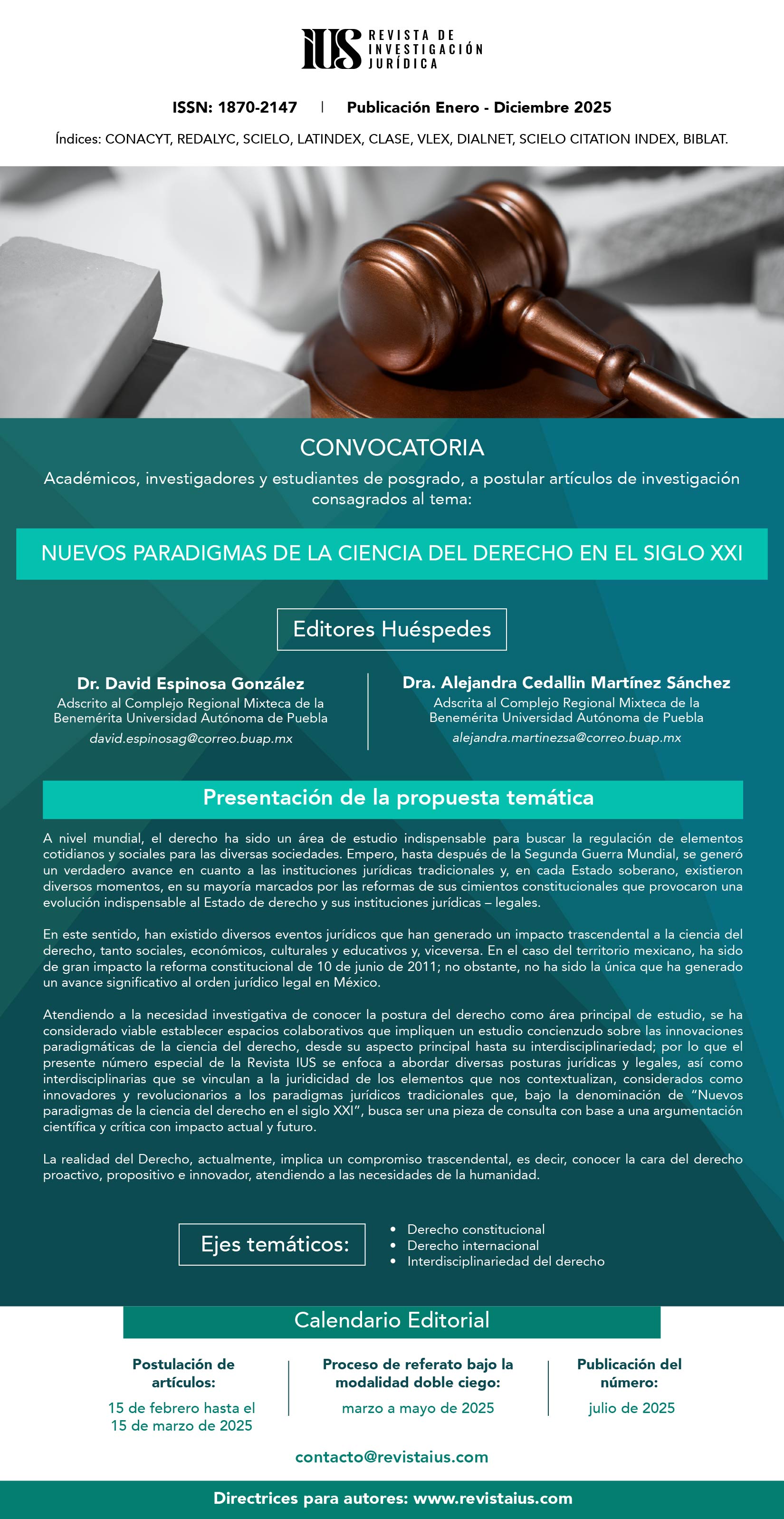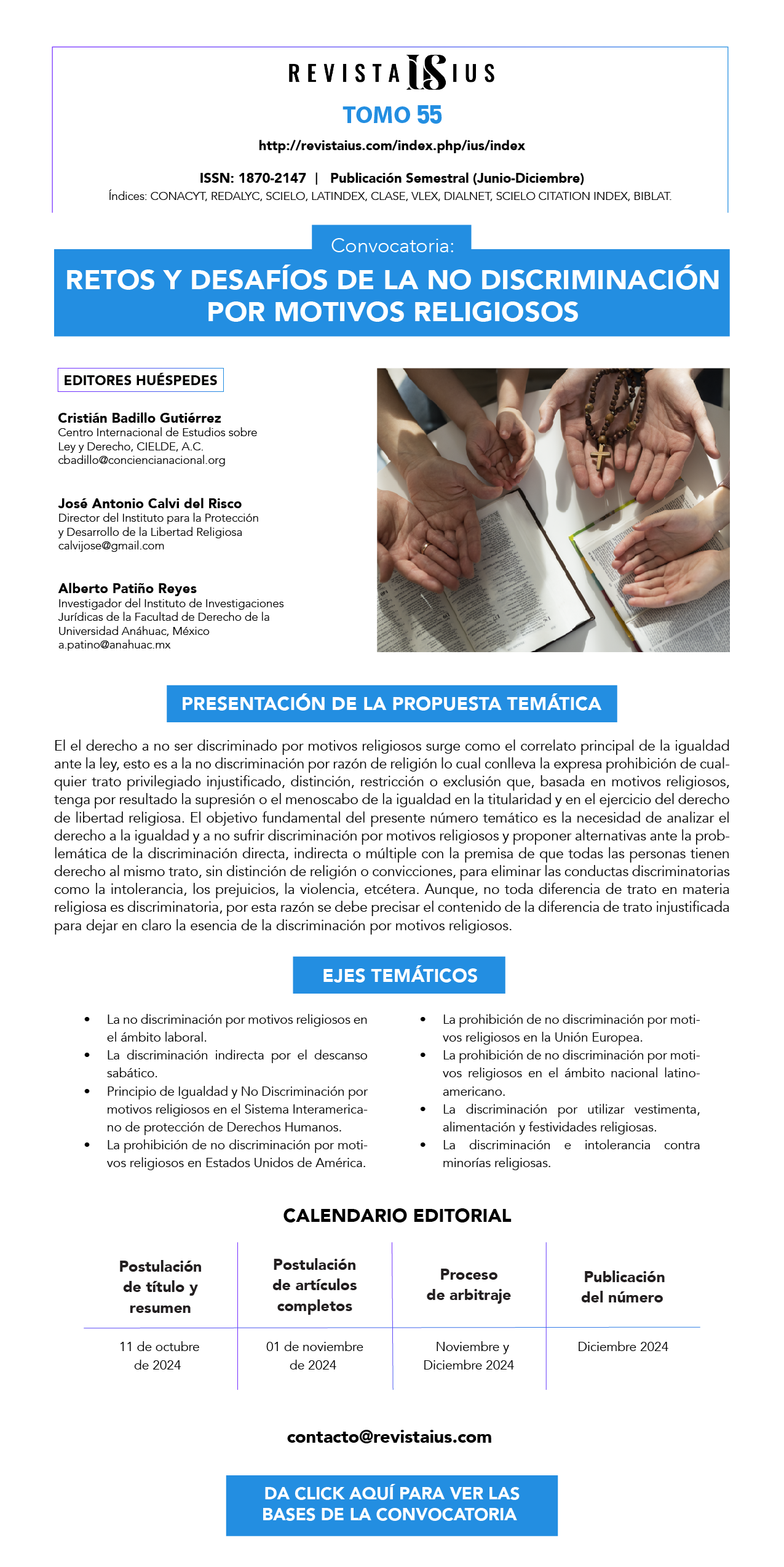Submissions
Submission Preparation Checklist
As part of the submission process, authors are required to check off their submission's compliance with all of the following items, and submissions may be returned to authors that do not adhere to these guidelines.-
The submission has been neither previously published nor submitted for consideration to another journal.
-
The file submitted is in word processing format.
-
The text complies with the formal and content requirements stipulated in the directives for authors.
-
The bibliographical records will be presented in writing in accordance with the style stipulations set out in Official Standard ISO-690.
-
The letter declaring the originality of the article is attached.
-
The ORCID ID is indicated for each of the authors.
Editorial
Presentation of the issue by the coordinator of each edition.
Research articles
Results of original research (theoretical and empirical) on a particular subject matter as corresponding to the topics covered.
Articles for review
A critical review of the state of discussion on a particular subject matter as corresponding to the topics covered.
Copyright Notice
Revista IUS, published by the Legal Sciences Institute of Puebla A.C., is distributed under the Creative Commons Attribution-NonCommercial 4.0 International (CC BY-NC 4.0) license.
We authorize collaborators to upload a copy of their published work on their personal websites or any Open Access repository, provided that Revista IUS is specifically cited as the original source, indicating the year and issue of the respective example and adding the link to the webpage on which this publication can be freely consulted in toto and without charge: http://www.revistaius.com
Readers are free to:
Share, copy and redistribute the material via any medium or format.
The licensor cannot revoke these freedoms as long as you follow the license terms.
Under the following terms:
Attribution: You must give appropriate credit, provide a link to the license, and indicate if changes were made.
You may do so in any reasonable manner, but not in any way that suggests the licensor endorses you or your use.
NonCommercial – You may not use the material for commercial purposes.
If you remix, transform or build upon the licensed material, its distribution is not permitted.
Charges for managing articles: Revista IUS will not charge for receiving, processing or publishing articles (Article Processing Charge, or APC) submitted by authors.
Privacy Statement
The names and email addresses introduced in this journal will be used exclusively for its established objectives and will not be passed to third parties or used for other objectives.




